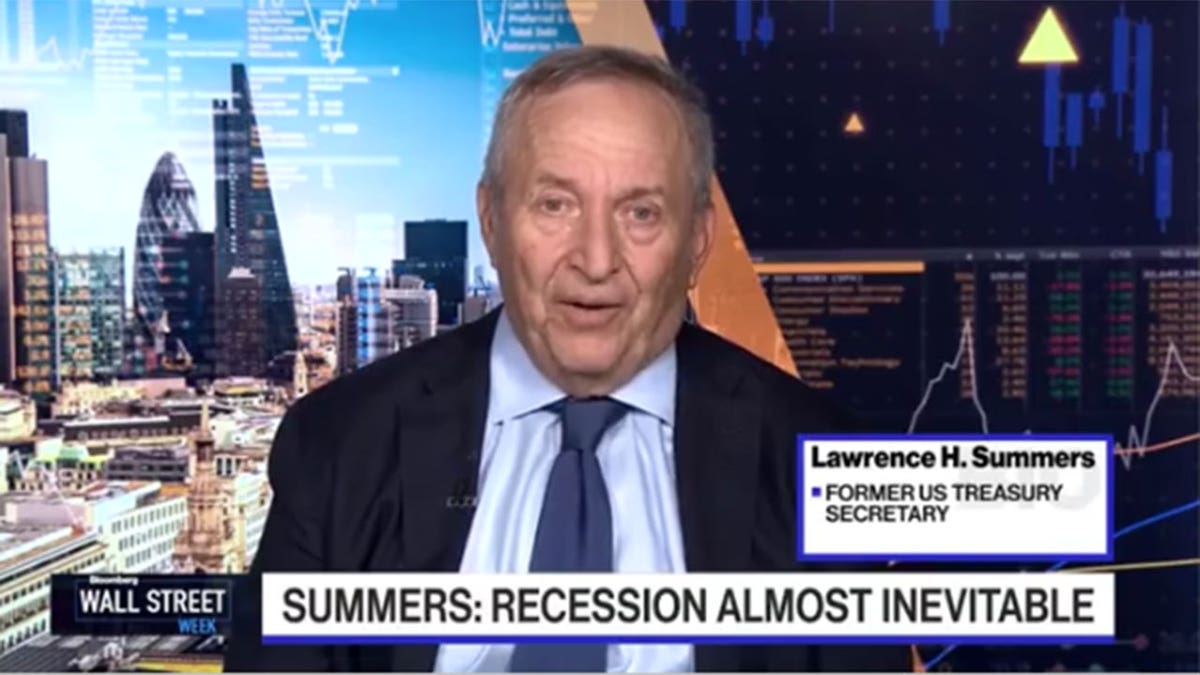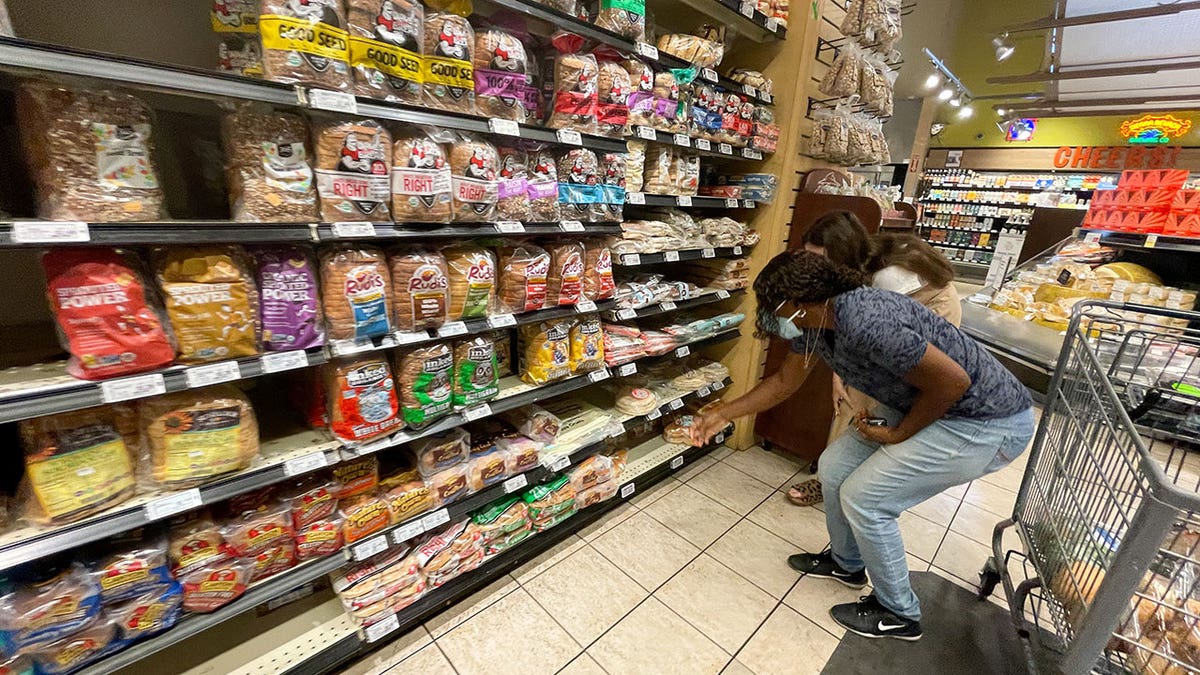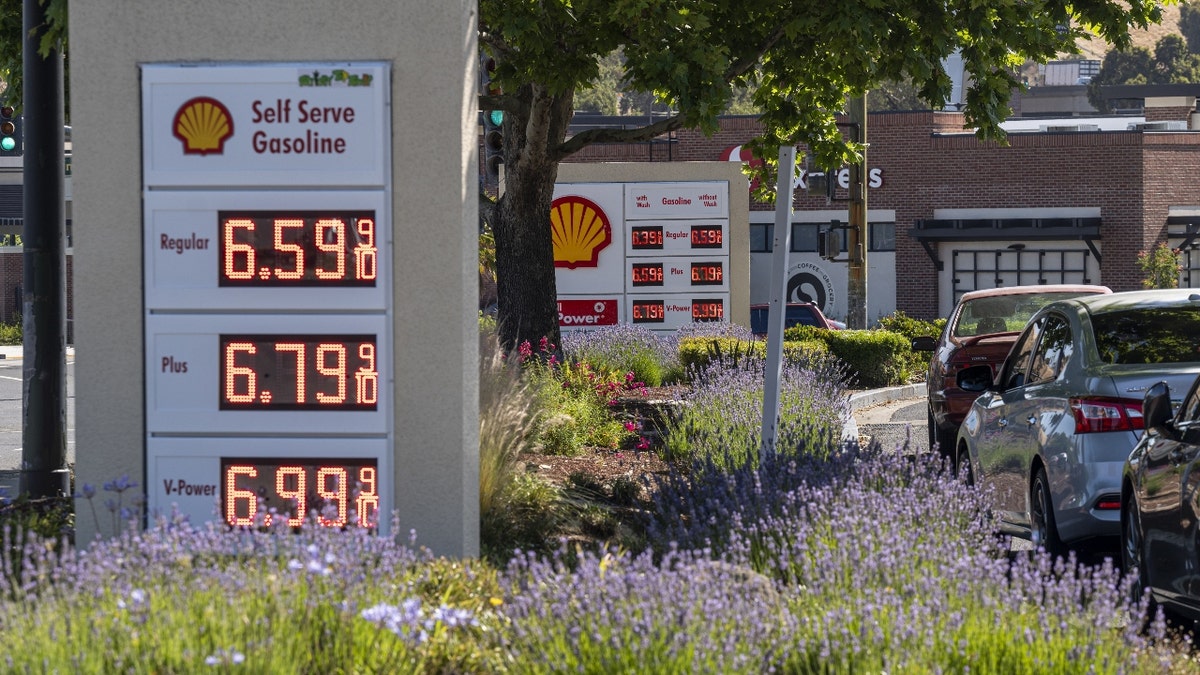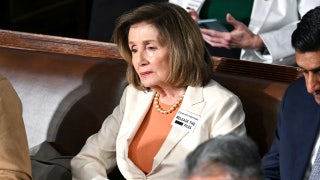Larry Summers says recession is 'almost inevitable'
The former treasury secretary said on Bloomberg TV's "Wall Street Week" that a recession is "almost inevitable" in the next two years and that there was a risk it could come sooner.
Former Treasury Secretary Larry Summers said Sunday on Bloomberg's "Wall Street Week" that a recession was "almost inevitable" in the next two years, but that there was a risk it will come sooner.
Bloomberg TV host David Westin asked Summers about the biggest risk with the economy looking forward.
"I think a recession is almost inevitable, probably a 75%, 80% chance within the next two years, and there's certainly a real risk that it will come sooner," Summers said.
Yet President Biden said last Monday that there was "nothing inevitable about a recession," and that he talked to Summers that morning.
INFLATION TIMELINE: MAPPING THE BIDEN ADMIN'S RESPONSE TO RAPID PRICE GROWTH

Larry Summers said Sunday that a recession is "almost inevitable." (Screenshot/BloombergTV/WallStreetWeek)
A reporter started to ask the president about economists who were predicting a recession before the president responded, "don't make things up."
"Now you sound like a Republican politician, I'm joking, that was a joke, that was a joke," Biden said. "But all kidding aside, no I don't think it is. I was talking to Larry Summers this morning, there's nothing inevitable about a recession."
Summers told Bloomberg that it was a "very difficult thing" and emphasized that it was important that we "slay the inflation dragon" if the country is going to go through a "period of pain."
Westin said that some were predicting a "short and shallow" recession and asked Summers if he agreed.

People shop in a supermarket in Los Angeles, California, June 13, 2022. (Reuters/Lucy Nicholson)
"I hope they're right," Summers responded, adding that the question goes back to how much of inflation is transitory. "If most of inflation is transitory, then we're not going to have to live with very much pain to get the inflation out of the system. If more of it is more engrained, then we're going to have to live with more difficulty."
He also said that he believes there is a "meaningful amount of inflation" that the country needs to get out of its system and said that the potential recession doesn't have to be like "the recessions of the last generation."
"This should not be anything like what happened after COVID. This should not be anything like what happened after the great financial crisis. Just how deep, just how long it will be, difficult to know. But most people remember the last two recessions and I don't see any reason while we're heading for difficulties of that kind," Summers continued.

Gas prices at a Shell station in Hercules, California, on June 22, 2022. (David Paul Morris/Bloomberg)
Summers also commented on the Supreme Court's decision to overturn Roe v. Wade and their decision on a concealed carry law in New York.
"I'm worried about a Supreme Court that so radically breaks with its own precedent that is so fully in the life of the country. I wonder if that doesn't raise questions more broadly about the predictability and continuity of policy, the extent to which, the very strong checks and balances in our democracy," he said, calling both decisions "appalling."
CLICK HERE TO GET THE FOX NEWS APP
The Consumer Price Index rose 8.6% in May from a year ago, hitting a new 40-year-high.
Gas, on average, costs 48.7% more than it did a year ago but jumped 16.9% in May. Gas has increased 106.7% over the past year.










































